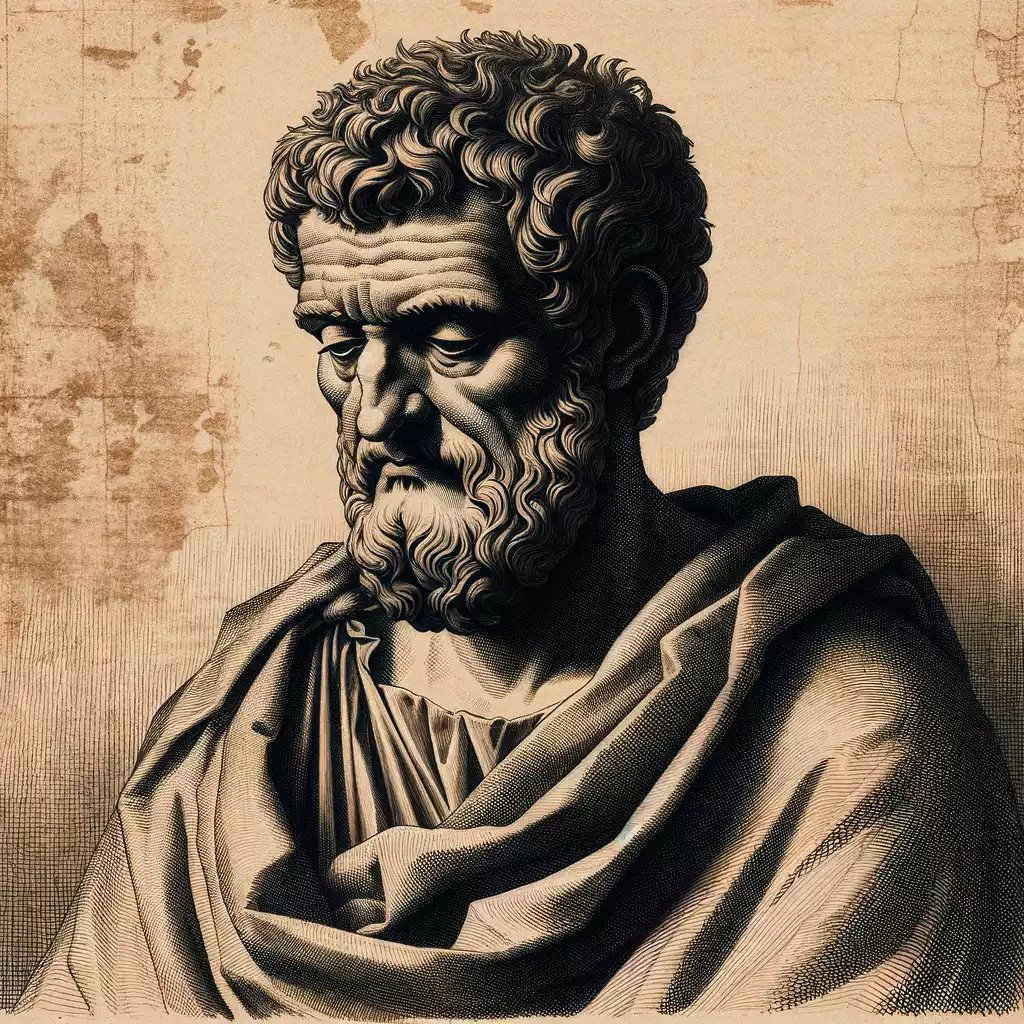Tertullian, a titan in early Christianity’s chronicles, lived circa 155 to 240 AD. His odyssey, from rhetorical eminence to ardent Christian apology, has enthralled academics and believers. A native of intellectual hub Carthage, Tertullian’s initial exposure to Roman culture and ideals profoundly molded his worldview. His acceptance of Christianity constituted a pivotal turn, ushering prolific writings dexterously integrating legal erudition and theological depth. Brimming with impassioned rhetoric and incisive argumentation, his works established Christian dogma’s cornerstones and shaped the nascent church’s identity amid turbulent eras. This exploration illuminates Tertullian’s transformative journey, elucidating how his formidable intellect and steadfast faith carved an enduring legacy into Christian history’s tapestry.
The Rhetorician’s Path to Faith
Tertullian’s early life in Carthage was steeped in classical Roman education, a crucible where his rhetorical skills were honed to perfection. His adeptness in legal matters and profound grasp of Greco-Roman philosophy set the stage for his eventual embrace of Christianity. The conversion of Tertullian is not just a mere shift in religious belief but a remarkable fusion of intellectual rigor and spiritual awakening. His writings, marked by a distinctive style that combined logical precision with emotional intensity, reflected a deep commitment to defending the Christian faith against prevailing heresies and external criticisms.

Tertullian’s apologetic works, such as “Apologeticus,” reveal a man deeply engaged in the societal and theological debates of his time. His arguments against Roman pagan practices and in defense of Christian virtues showcase a brilliant mind grappling with the existential questions of faith and reason. As a polemicist, Tertullian was unafraid to challenge heretical views within the church, advocating for a puritanical approach to Christian living and doctrine. This chapter illuminates the profound impact of Tertullian’s conversion on his life and work, highlighting how his unique blend of intellectual prowess and fervent faith shaped his contributions to early Christian theology.
The Legacy of Tertullian’s Writings
The enduring impact of Tertullian’s works lies in their profound influence on the development of Christian theology and doctrine. His treatises, rich in doctrinal content, provided a robust theological framework for understanding key Christian beliefs. Tertullian’s emphasis on the concept of the Trinity, a cornerstone of Christian doctrine, marked a significant advancement in theological thought. His discussions on the nature of Christ and the role of the Church in salvation were pioneering, offering clarity and depth to complex theological debates. Tertullian’s legacy is not merely in his writings but in his approach – a blend of intellectual rigor and unwavering faith, setting a precedent for future theologians.
Tertullian, a luminary in the realm of early Christian thought, remains a figure of immense significance. His journey from a skilled rhetorician to a passionate defender of the Christian faith illustrates the transformative power of belief and intellect. His writings, resonating through the ages, continue to inspire and inform Christian theology. Tertullian’s legacy is a testament to the enduring impact of a life devoted to faith, reason, and the pursuit of truth.
References
Barnes, Timothy David. “Tertullian: A Historical and Literary Study.” Oxford University Press, 1985.
Rankin, David. “Tertullian and the Church.” Cambridge University Press, 1995.
Wilhite, David E. “Tertullian the African: An Anthropological Reading of Tertullian’s Context and Identities.” Walter de Gruyter GmbH & Co KG, 2007.
Young, Frances. Tertullian: Life and Legacy.” SPCK Publishing, 2013.
